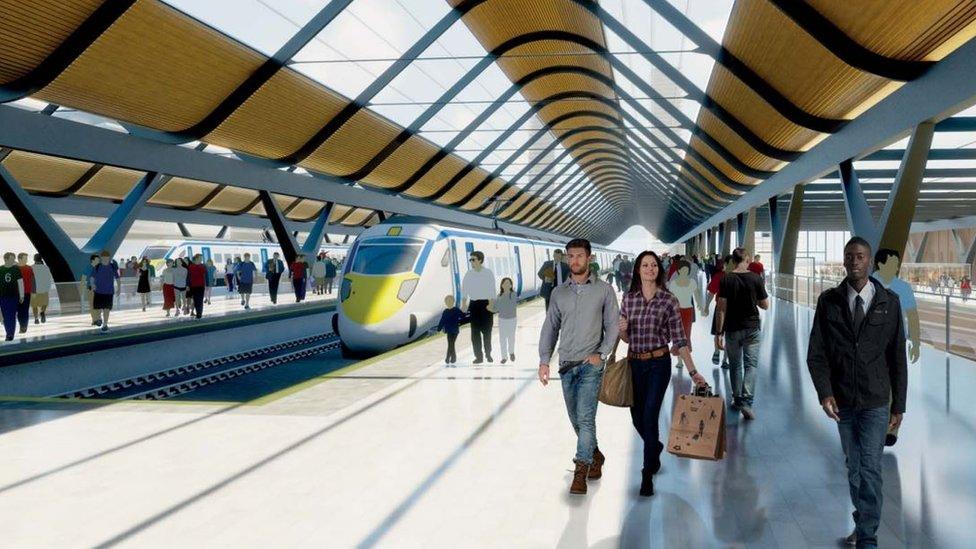Midlands devolution debate: Urban vs Rural rift
- Published
- comments
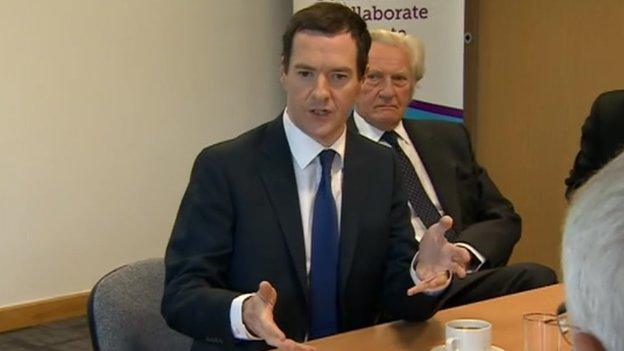
Chancellor George Osborne was in Birmingham this week to discuss prospects of a Midlands mayor
Let's join the dots between some of the week's breaking news stories:
Chancellor George Osborne comes to Birmingham with the former deputy prime minister Lord Heseltine at his side to proclaim to the assembled West Midlands metropolitan council leaders his vision of devolved political and spending power to a new combined authority headed by an elected "metro mayor".
His Cabinet colleague, Transport Secretary Patrick McLoughlin, declares that following the failure of "anti HS2" parties, UKIP and the Greens, to garner significant support along the proposed HS2 route, the political battle over high speed rail is effectively won. Construction of the first phase between London and Birmingham is due to begin within two years and the enabling legislation for the next phases to Manchester and Leeds will be presented to this parliament rather than next.
Plans for the tallest new office block to be built outside London are unveiled for the Colmore business district of Birmingham by Sterling Property Ventures and Rockspring. This confirms the city's status as by far the biggest financial services hub outside London with £630m of office space transactions recorded last year combined with £70.5m in 2013.
'Main wealth creator'
Link them all together and you have a powerful reassertion of the view that the great cities are the main drivers of Britain's 21st Century economy.
The managing director of John Lewis, Andy Street, said as much when he became chairman of the Greater Birmingham and Solihull Local Enterprise Partnership. He envisages the city as the main wealth creator, cascading its largesse to the surrounding districts and shires.
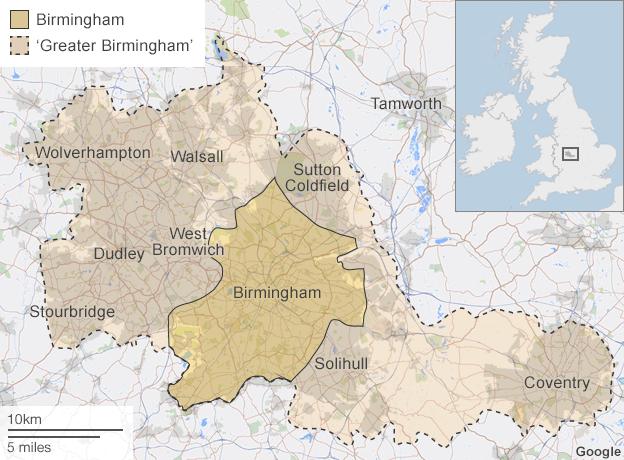
How a combined West Midlands authority might be formed
And the "name on the tin" approach reveals the chancellor's priorities too. Unveiled in the Queen's Speech is the Cities and Local Government Bill.
Mr Osborne says only that he hopes the counties will be "part of the conversation". But his clear determination to use the Manchester model, "devo Manc", as the blueprint for a great urban revival in all the eight "core cities".
Party colleagues they may be, but the leaders of our major county councils see things very differently.
They are determined not to be mere also rans in the devolution race.
Cutting-edge businesses
The leader of Worcestershire County Council, Adrian Hardman, pointed out to me recently that there's much more to the supposedly rural shires than the Malvern Hills and the Three Counties agricultural show.
The spa town is also home to cutting-edge electronics and communications businesses and Worcester Bosch is just up the road in the county town. The counties, says Mr Hardman, are far more productive to the UK economy than the metropolitan areas.
It's a view shared by the leader of Staffordshire County Council, Philip Atkins.
Even though he is himself a farmer, he is understandably proud that Jaguar Land Rover had the good sense to site their giant engine factory in the south of his own "creative county". The other great global success story JCB is also based in Staffordshire.
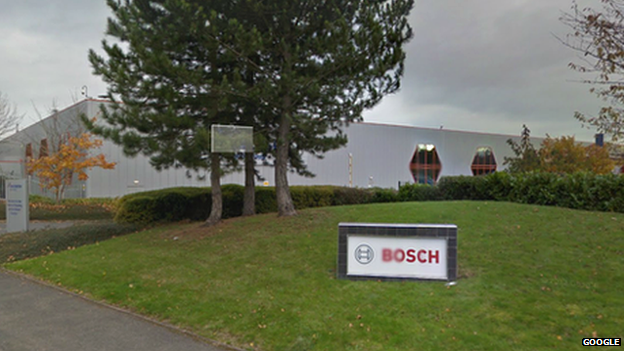
Bosch is one of Worcester's biggest high-tech businesses
Mr Atkins is a determined critic of that high-speed rail project, another debate that is not exactly going his way. It enshrines the pre-eminence of that same shortlist of major cities.
The shires, by contrast, would bear almost all the disruption caused by constructing and operating it and precious few of its benefits.
As things stand Staffordshire would not even have a station in Stoke-on-Trent. That city would have to make do with an indirect link to high-speed rail via the interchange across the Cheshire border at Crewe.
'Tough choices'
Many of these themes are drawn together in a Plan for Government 2015-20, published shortly before the election by the County Councils Network, external (CCN).
Its "case for county devolution" reminds us of the stark background to all this talk of devolved spending power. That much-vaunted pot at the centre of this debate will contain less and less public money in real terms throughout the lifetime of the present parliament.
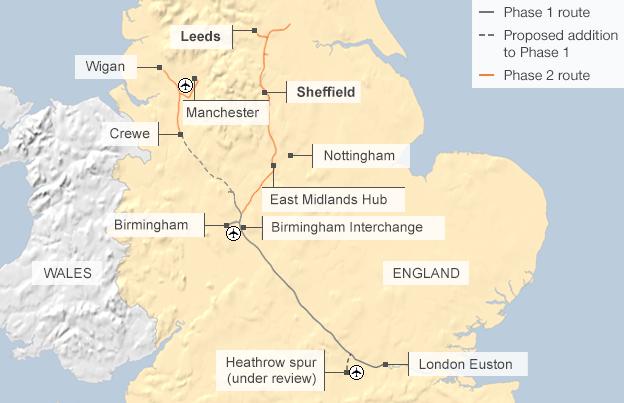
Proposed route of HS2
According to the CCN report: "Firstly the local government finance system is financially unsustainable following funding reductions and demand-led pressures.
"Only financial and administrative devolution, alongside specific funding reforms, will enable local authorities and partners to resolve key social and economic problems tailored to each area's unique circumstances and needs."
Would it be unduly cynical to suggest that it may just be significant that it is the chancellor who is driving so much of this?
With those devolved political and spending powers would come many of the less welcome headaches, the so-called "tough choices" to which central government ministers in Whitehall departments so often refer.
On this week's Sunday Politics Midlands I'll be joined by the man whose name comes up time and time again when this subject is aired, Digby, Lord Jones of Birmingham. Does he think a city region with a metro mayor is the best way to fire-up that "Midlands economic engine' George Osborne keeps telling us about?
Would he consider standing for it himself? Join as at 11.00 on BBC One and find out.
- Published26 May 2015
- Published6 October 2023
